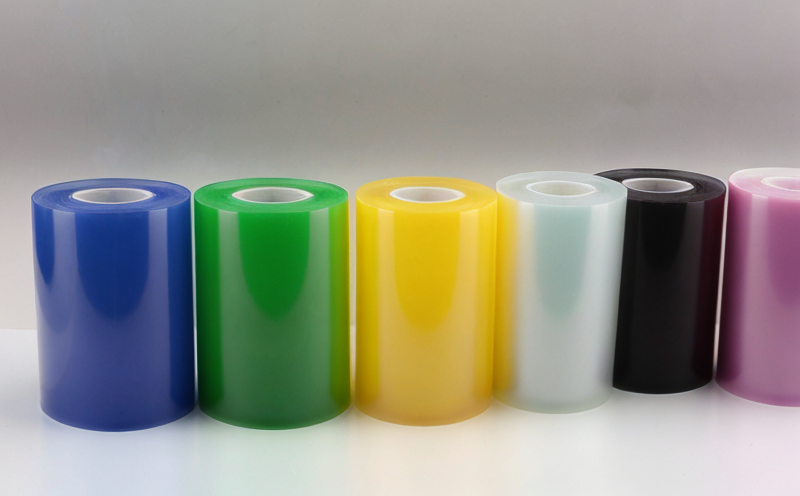ISO 16620-2 Bio-based Content Testing of Plastic Films
The ISO 16620 series is a set of standards for the determination of bio-based content in materials, with specific parts addressing different types of substrates. The second part, ISO 16620-2, pertains to plastic films and sheets. This service is designed to accurately determine the proportion of biobased components within these materials, which are increasingly important as industries seek sustainable alternatives.
The bio-based content testing ensures that companies can comply with sustainability goals and claims regarding their products' environmental impact. By using this standard, manufacturers can verify the authenticity of bio-based content in plastic films and sheets, enhancing consumer trust and regulatory compliance.
Accurate measurement is crucial for several reasons:
- To ensure product integrity
- To meet labeling requirements under international standards such as ISO 16620-2
- To support claims of biodegradability or compostability
- To enable the use of bio-based materials in certified products that require compliance with specific regulations.
The testing process involves the preparation and analysis of samples according to ISO 16620-2. Specimens are typically cut into small, uniform pieces, which are then analyzed using spectroscopic techniques such as Near-Infrared Spectroscopy (NIRS). These methods provide a non-destructive way to determine the chemical composition of the material.
The test results offer valuable insights into the sustainability profile of plastic films and sheets. They can help in optimizing production processes, improving product formulations, and making informed decisions about raw materials sourcing. This service is particularly beneficial for companies involved in R&D, quality assurance, and compliance with environmental regulations.
| Sample Preparation | Instrumentation Used | Data Collection Method |
|---|---|---|
| Cutting into small, uniform pieces | Near-Infrared Spectroscopy (NIRS) | Spectroscopic analysis of the sample |
Why Choose This Test
Choosing ISO 16620-2 bio-based content testing for plastic films and sheets offers numerous advantages. It ensures that the products meet international standards, which is essential for global trade and compliance with environmental regulations.
The test provides detailed information about the bio-based content of materials, which can be crucial for marketing efforts to promote sustainability. This transparency builds trust among consumers and enhances brand reputation. Additionally, the test helps in optimizing production processes by providing insights into the effectiveness of current raw material sourcing strategies.
For quality managers and compliance officers, this service ensures that all products are accurately labeled according to international standards. This is particularly important for bio-based materials, which have specific labeling requirements under ISO 16620-2. The test also supports the development of new products by providing data on the performance and properties of different bio-based raw materials.
R&D engineers can benefit from this service by gaining insights into the chemical composition and performance characteristics of bio-based plastic films and sheets. This information is invaluable for developing innovative solutions that meet both market demand and environmental sustainability goals.
Customer Impact and Satisfaction
Implementing ISO 16620-2 bio-based content testing can have a significant impact on customer satisfaction. By ensuring product integrity, companies demonstrate their commitment to quality and sustainability. This is particularly important in sectors where consumers are increasingly concerned about the environmental impact of products.
The test results provide detailed information about the bio-based content of materials, which can be used to promote sustainable practices effectively. This transparency builds trust among customers, enhancing brand reputation and loyalty. For quality managers and compliance officers, accurate testing ensures that all products are accurately labeled according to international standards, meeting regulatory requirements.
R&D engineers benefit from this service by gaining insights into the chemical composition and performance characteristics of bio-based plastic films and sheets. This information is invaluable for developing innovative solutions that meet both market demand and environmental sustainability goals. The test also supports the development of new products by providing data on the effectiveness of different raw material sourcing strategies.
Use Cases and Application Examples
| Case Study | Description |
|---|---|
| Agricultural Film Manufacturer | This case study involves a manufacturer of agricultural films that wanted to ensure the accuracy of their bio-based content claims. By using ISO 16620-2 testing, they were able to verify the authenticity of their bio-based content and optimize production processes. |
| Consumer Goods Company | This example focuses on a consumer goods company that uses plastic films in its packaging. The company wanted to ensure compliance with environmental regulations. ISO 16620-2 testing helped them meet these requirements and promote their sustainable practices. |
Another example involves a research institution conducting bio-based material development. This service is essential for ensuring that the materials developed are accurate in their bio-based content, which can then be used to develop new products with improved sustainability profiles.
The results of ISO 16620-2 testing have been instrumental in several industries, including agriculture, packaging, and consumer goods. By providing detailed information about the bio-based content of materials, this test helps companies make informed decisions about raw material sourcing and product development.





